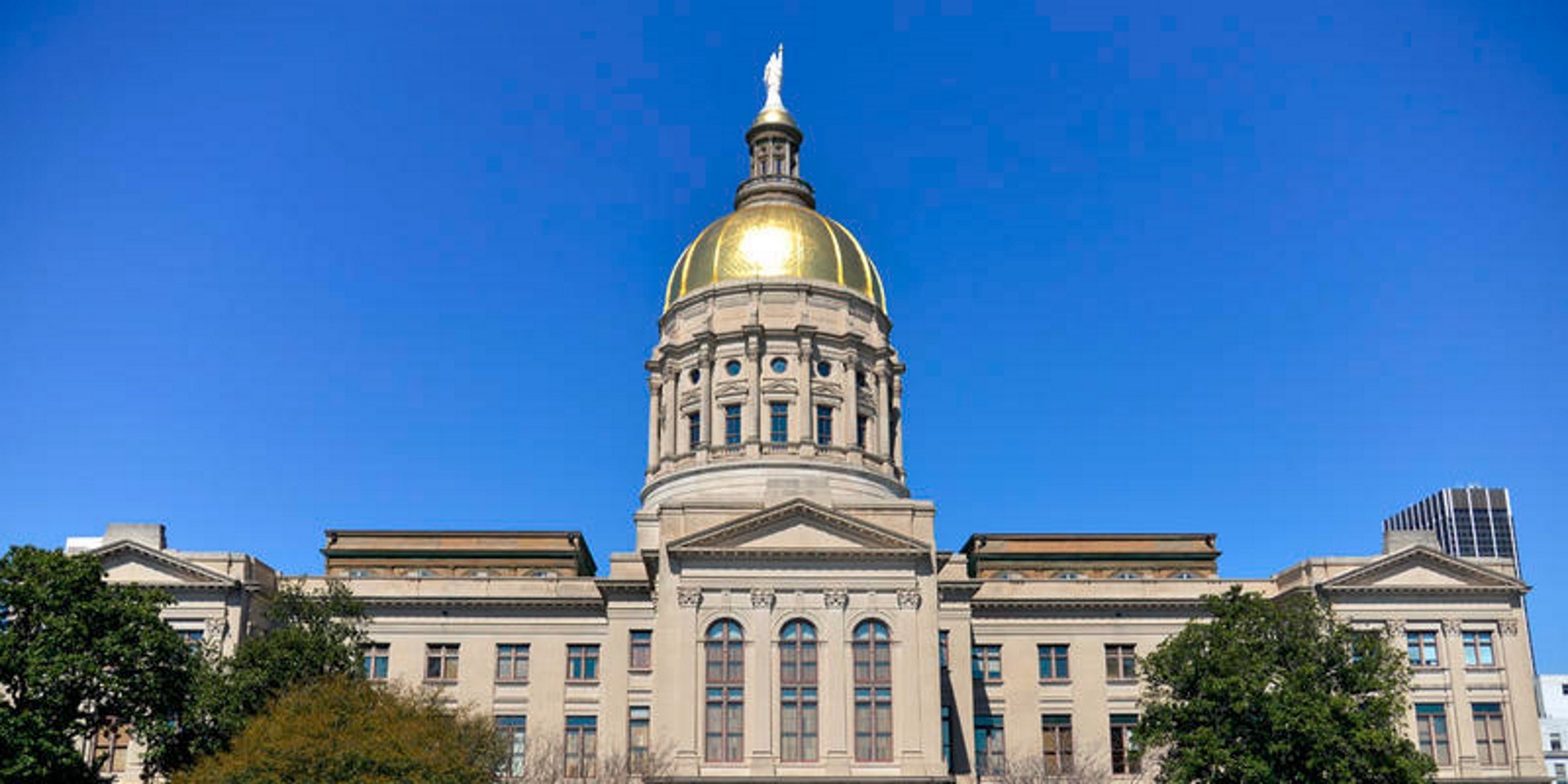A federal appeals court plans to hear arguments Friday on whether it should overturn a lower court ruling that permanently blocked a restrictive abortion law passed in Georgia in 2019.
The hearing comes amid a heightened focus on abortion with the U.S. Supreme Court earlier this month allowing a similarly restrictive Texas law to take effect. The justices also plan to hear arguments in December on Mississippi’s attempt to overturn the high court’s decisions in Roe v. Wade and Planned Parenthood v. Casey, which affirmed the right to an abortion.
The Georgia law would have banned most abortions once a “detectable human heartbeat” is present. As early as six weeks into a pregnancy, before many women realize they’re expecting, cardiac activity can be detected by ultrasound in cells within an embryo that will eventually become the heart. Abortion is currently available in Georgia up to 20 weeks into pregnancy.
The American Civil Liberties Union, Planned Parenthood and the Center for Reproductive Rights sued on behalf of Georgia abortion providers and an advocacy group to block the law.
U.S. District Judge Steve Jones ruled in July 2020 that the law was unconstitutional. The state appealed to the 11th U.S. Circuit Court of Appeals, and a three-judge panel is to hear arguments Friday.
“The court rejects the state defendants’ argument that the statutory purpose solely concerns ‘promoting fetal well-being,’” Jones wrote. Instead, he wrote, the law’s specific references to Roe v. Wade and “established abortion related precedents” indicates that its purpose “was to ban or de facto ban abortion.”
Republican Gov. Brian Kemp signed the Georgia legislation and “looks forward to defending the law in court because Georgia is a state that values life,” spokeswoman Katie Byrd said.
Sean Young, ACLU of Georgia legal director, said the law violates decades of Supreme Court precedent and limits access to critical health care.
“Georgia has one of the highest maternal mortality rates in the nation, and this case is about letting her decide – letting women make their own health care decisions instead of politicians,” he said.
The law included exceptions for rape and incest as long as a police report is filed. It also provided for later abortions when the mother’s life is at risk or a serious medical condition renders a fetus unviable.
The law also would have granted personhood to a fetus, giving it the same legal rights as people have after birth.
The landmark 1973 decision of Roe v. Wade declared a fundamental right to an abortion prior to viability of the fetus. Planned Parenthood v. Casey narrowed that in 1992 to say states can’t place an undue burden in the way of women seeking an abortion prior to viability.
Georgia’s so-called heartbeat law was one of a wave of laws passed by Republican-controlled legislatures in recent years to attack those rulings as anti-abortion activists and lawmakers saw opportunity in a new conservative Supreme Court majority.
Lawyers for the state argue in a filing with the 11th Circuit that Georgia’s law isn’t an abortion ban because it allows elective abortions until a heartbeat is detectable and also abortions in certain cases beyond that point. They also reject arguments that defining a fetus as a “natural person” is unconstitutionally vague.
The law’s opponents argue Jones correctly blocked the law because it violates Supreme Court precedent, and the new definition of “natural person” would change hundreds of Georgia laws “without any consideration of their context.”
Eric Segall, a constitutional law expert at Georgia State University’s law school, said there’s little chance the appeal will succeed in the 11th Circuit because the law “is flatly, unambiguously, unarguably inconsistent with binding Supreme Court precedent.”
But he said it’s possible the judges could rule the law has to be upheld because of precedent and then enumerate reasons to reverse or modify that precedent.
The 11th Circuit could also wait to see how the Supreme Court rules after hearing the Mississippi case in December to see if the court’s thinking on abortion regulations shifts, University of Georgia law professor Ron Carlson said.
While the landscape on abortion seemed settled when Jones ruled last year, Carlson said, “the ground began to shake” with the Texas ruling earlier this month. The court didn’t rule on the constitutionality of that law, which also bans abortions once cardiac activity is detectable, but declined to block enforcement while a challenge to the law unfolds.
“That Texas ruling, it seems to me, is a straw in the wind that abortion laws are going to be freshly scrutinized by this Supreme Court,” Carlson said.









